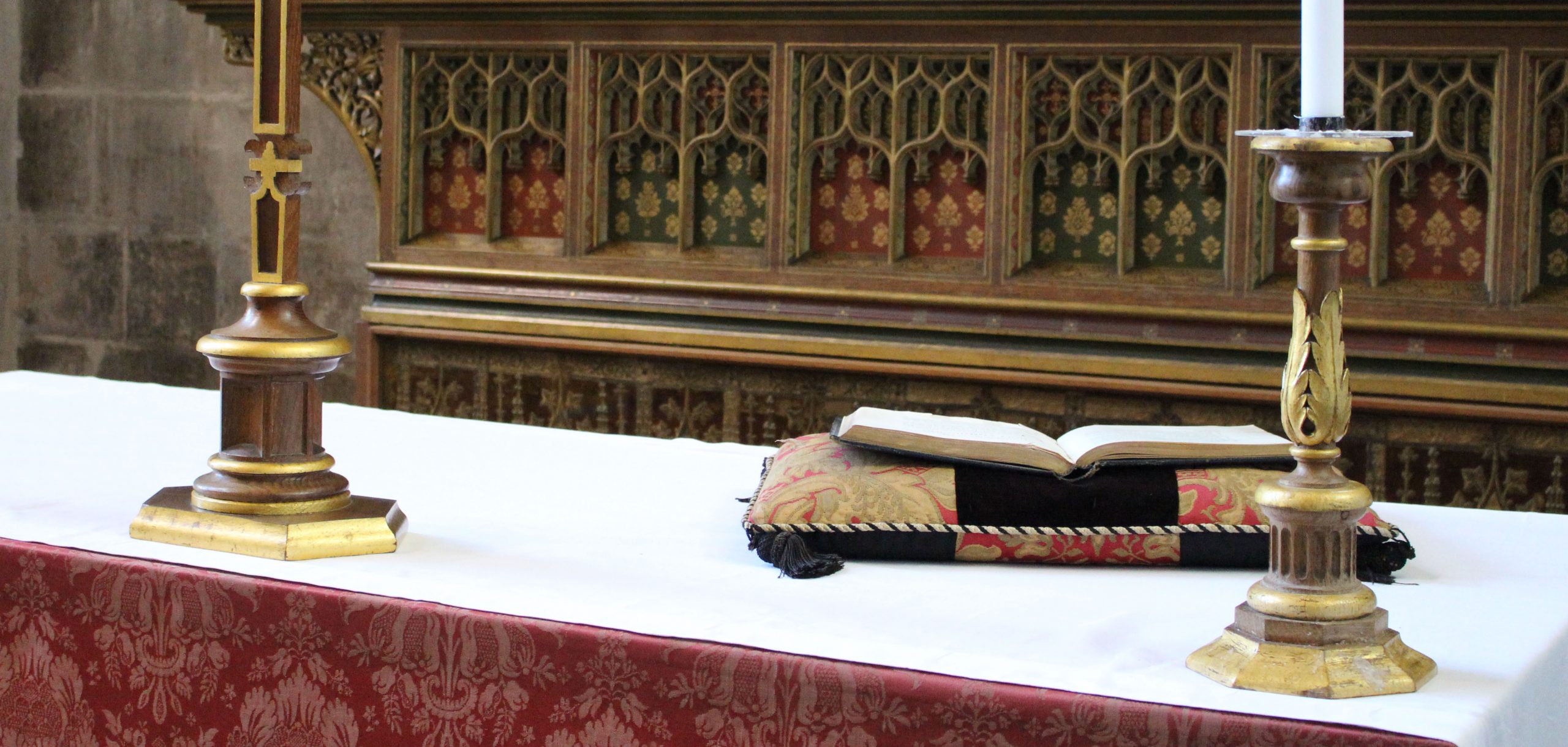The Last Sunday after Trinity

A Sermon preached by Canon Edward Probert, Chancellor
Sunday 23 October, The Last Sunday after Trinity
2 Timothy 4.6-8;16-18; Luke 18.9-14
In Church terms, this is called the Last Sunday after Trinity, and the reading from the letter to Timothy has a suitably valedictory tone: ‘I have fought the good fight, I have finished the race, I have kept the faith’. More elegant, and clearer in meaning, perhaps, than the valedictory quotation from Terminator 2 which we’ve been hearing again in the last couple of days – ‘Hasta la vista, Baby’. If Mr Johnson were given to biblical quotations, I he might perhaps have quoted verse 16: ‘At my first defence, no one came to my support, but all deserted me.’
In these tumultuous times in our politics, media, and economy, it’s hard to avoid letting this remarkable drama occupy the full screen. But we come to church, and we place the scriptures in such a central place in our worship, in part to step back from the immediate and the ephemeral, and to give ourselves perspective, to know ourselves to be rooted in a very long story of God’s interaction with us humans. Others have been down such roads before; countless others have grappled with responding to their maker and redeemer; the present will soon become the past; and it’s not all about us!
So I will focus this morning on the simple, 6 verse, story told by Jesus, of two men saying their prayers in the Jerusalem Temple. This is a universal story. Yes, the details may be obscure and a bit alien – what was a Pharisee?; no-one welcomes the work of tax collectors, but isn’t theirs an honourable enough job?; what normally went on the Temple?; and so on. But it’s easy to see what’s going on, what is the outlook of each of these cartoon characters.
And the Pharisees of the New Testament can be rather cartoonish – so much so that the Shorter Oxford Dictionary defines the word as ‘a self-righteous person; a formalist; a hypocrite’. A rabbi once said to me that that while he found much that was familiar and beautiful in the Christian Scriptures, he was puzzled by this usage. To him this long-gone group of devout Jews were rather heroic figures, whose commitment to keeping their faith alive in day-to-day life had played a major part in helping his people survive the traumas of the Roman destruction of Jerusalem and their millennia of exile and persecution.
There really isn’t much wrong with this particular knockabout character: he follows the rules, he’s charitable, he isn’t deceitful or corrupt. But he is smug about his own religiosity, and in giving himself a more positive rating than the other guy. The hero of this little story is that one, who makes no comparisons, other than between himself and God: he knows how far short he is, and that he depends on the mercy of his maker.
We haven’t come here this morning – in person or online – because we are spiritual heroes. We aren’t. What we may gain here is a truer grasp on the loving mercy of God, and how it moulds our lives. Today’s Collect has been relocated here in recent years from its former place on the second Sunday of Advent, where it became swamped by all that getting ready for Christmas; it’s an annual reminder of the central place of the scriptures. We come back
to these ancient texts time after time, in order to be challenged, puzzled, encouraged; and enriched by the truer perspective they can provide.
We meet God here in these words; and in tangible ways in the sacrament of Christ’s body and blood; and, please God, in one another. We who have come to this temple of the living God not to dwell on what’s good about us, or wrong with someone else, but to open ourselves to the immeasurable blessings of the one who never goes off into the sunset, who never gives up on what he has made.




